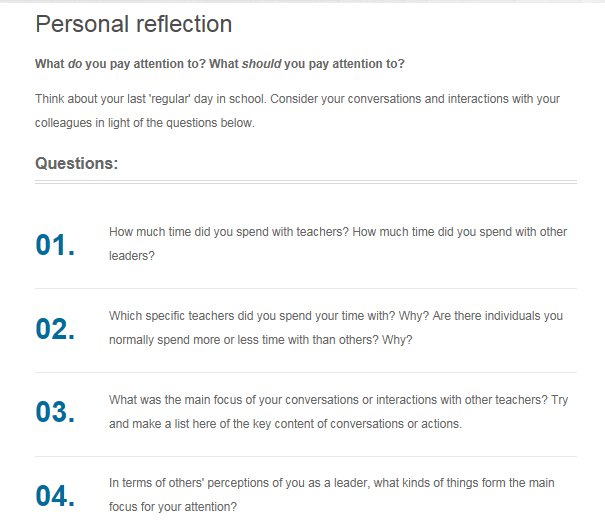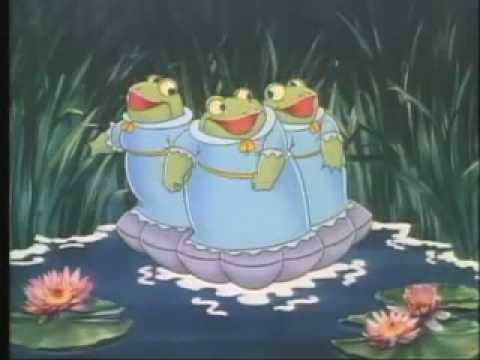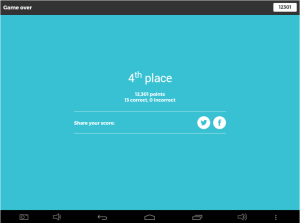
From very early on in my career, I’ve always been asked if I’d like to be a headteacher. The answer has always been a resounding “No.” In the classroom – that’s where I belong.
18 months ago, I became a Deputy Head at the school I’ve worked in since I was an NQT. Again, the headteacher questions. Again, the resounding “No.” No way. Not ever. Not part of my career plan. I’m not sure I ever really had one, but if I did, then headship didn’t feature.
And yet here I am, 18 months on, just back in the classroom after a 4 month stint as Acting Co-Headteacher. And did I enjoy it? A resounding… “Yes!”
When the opportunity arose for myself and my wonderful Deputy Head partner to take up the post in our school, I was excited. I never thought I would be, but it didn’t take long for me to think it through. It was a chance to find out what headship is like, in a school I know inside out, with colleagues I enjoy working with, and with children and families I have known for years. And most of all, a chance to do it all with a partner who I knew would be amazing at the job… far better than she would (or does) ever give herself credit for.
So we did it. We gave it a go. And, in more ways than either of us could have imagined, it exceeded expectations. More exhausting, more challenging, more demanding, more varied but more rewarding than I ever thought it could be. Before I started, I didn’t really know what a headteacher did all day. I’m not being disrespectful to anyone I’ve worked with, but I just didn’t know. I’ve done the job for 4 months. And I still don’t know. The time just flies by in a flurry of children and parents, staff knocking on the door, phones ringing, emails pinging, things needing signing… some days it seemed we had not stopped all day and yet achieved very little. But somehow, we managed to get the big jobs done: we wrote a SEF and an SDP, we went on learning walks, spoke with children, looked at children’s work, planned and delivered staff meetings, renovated the library, visited other schools, wrote governors’ reports … when I think back now at what we achieved in a short space of time, I’m honestly amazed. Not least because, with 18 days left of our headship, we got THE phonecall. Yes, to round off our time, we had the headship Ofsted experience. Not the most enjoyable of experiences, but an invaluable and rewarding one. It was on those two days (Yes, we were one of the lucky schools who had the full on 2 day inspection!) when I realised just how lucky I have been to be part of an amazing school community. No headteacher could do it alone: you need to be a part of a team in order to succeed.
We were very fortunate to receive a huge amount of support. All the staff and governors at school were amazing – not least our incredibly knowledgeable Inclusion Lead, Secretary and School Business Manager, without whose support, life would have been much, much harder. Local heads let us know that they were there for us, and that no question would be too stupid. The LA run a “New and Acting Headteachers” course once a term for a year, which was a great opportunity for us to learn about HR, finance, governance etc. Also, we have the most incredible Education Advisor who could not do enough to help us. He kept us on our toes, but also kept us well informed, putting us in touch with other advisors who could help when he couldn’t. There is no doubt that his support played a huge part in preparing us for our inspection. And of course, there was Google. No school can run without it. Who else knows quite as much about the health risks associated with pigeon faeces? I certainly didn’t. Although I’m quite knowledgeable now.
We are clearly very fortunate to have received so much support from so many people. But of course, it wasn’t a completely positive experience: there were days which were incredibly hard, when we had to call on the support of professionals who we would rather not have had to contact. It was on these days when I was so glad to have my headteacher partner with me: we could chivvy each other along when the days got long, pick each other up when we were down, even finish each other’s sentences in the end. Working together with her was undoubtedly the absolute highlight of the experience. I’m sure headship shouldn’t have been so much fun: not a day went by (even the bad ones) without the office being filled with the sound of uncontrollable laughter. And, having shared an office for four months, know her SO much better than I did before!
So now that I’ve had a taste of the job, ask me the question again: would I ever be a headteacher? The answer now is “Yes.”
Of course, it would never be quite like the autumn of 2017. The next time, I’d have to go it alone: I wouldn’t have my other half of the Acting Co-Headteacher double act at my side to spin on a chair with when things got tough, and I wouldn’t be in a school where everything was familiar. The learning curve next time would’t be quite as steep as the first two weeks as September. For two days, we sat in a daze wondering what to do. And then we got on with learning. I would wait until my family were older: there were times when I got home when my 4 and 8 year old children were about to go to bed. I know my husband (who is also a teacher) would never, ever have complained, but my job impacted on him, having to leave work earlier to pick up the children and our nicely established home routine had to go out of the window. His support was amazing. He would never want to stop me applying for a headship, but until the time is right for my whole family, then Deputy Headship will be enough. There are exciting times ahead at my school, and I am sure that, with our new headteacher now in post, the school will continue to grow and succeed. There is much to look forward to and so much learning to be done before taking on a headship of my own.
By the way, should you want to read it, our Ofsted report is here. We’re very proud of it!


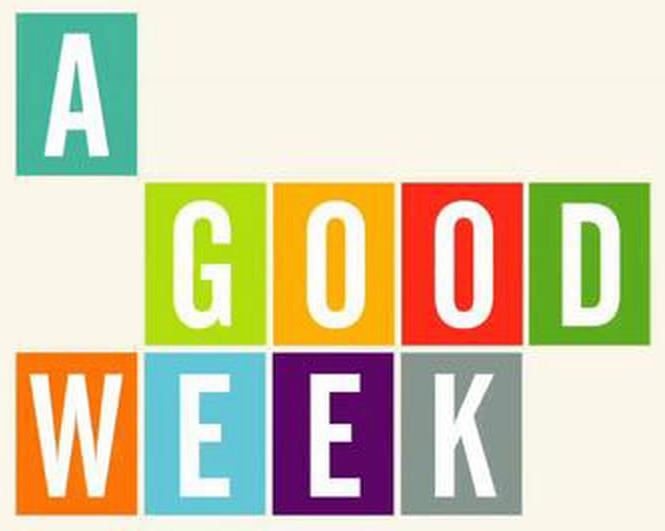
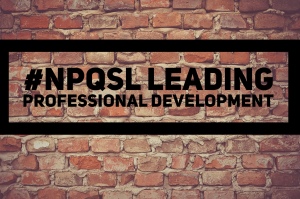 Having read the initial
Having read the initial  I have been meaning to write this post for a while, but it seems, for the last couple of weeks, there has always been Something Else To Do. I have a feeling that Something Else To Do is going to be a very familiar feeling in the year ahead, as I have accepted the next big challenge. I am about to join the SLT of my school as Acting Deputy Headteacher.
I have been meaning to write this post for a while, but it seems, for the last couple of weeks, there has always been Something Else To Do. I have a feeling that Something Else To Do is going to be a very familiar feeling in the year ahead, as I have accepted the next big challenge. I am about to join the SLT of my school as Acting Deputy Headteacher.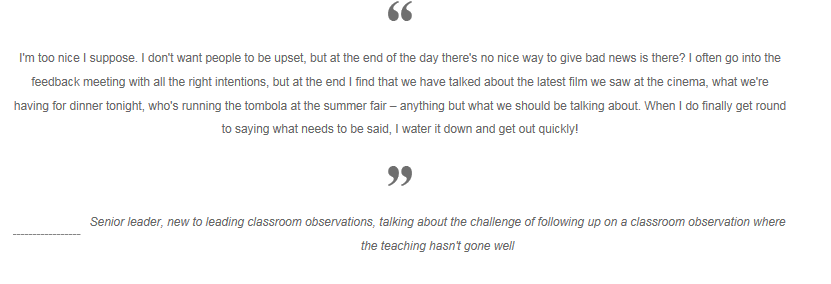
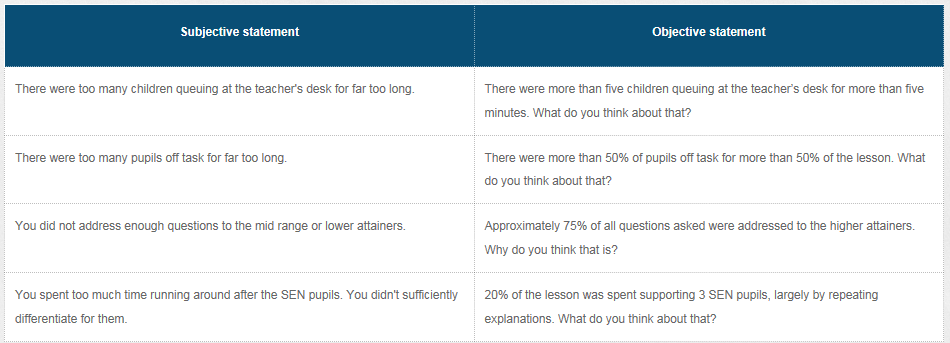 Probably, for most reading this, this image is completely obvious. But it wasn’t to me – no-one ever teaches you how to observe or how to feed back findings. My next observations will be different, and hopefully more productive.
Probably, for most reading this, this image is completely obvious. But it wasn’t to me – no-one ever teaches you how to observe or how to feed back findings. My next observations will be different, and hopefully more productive.